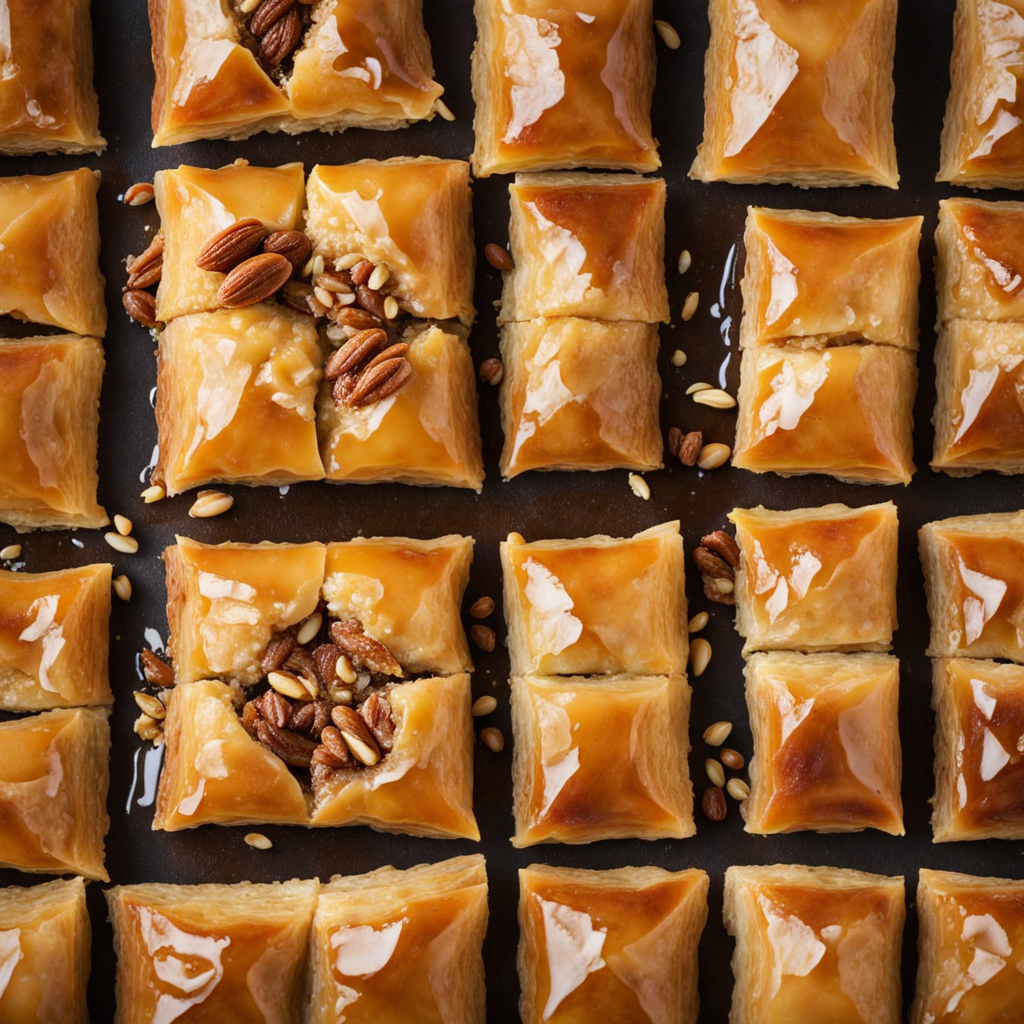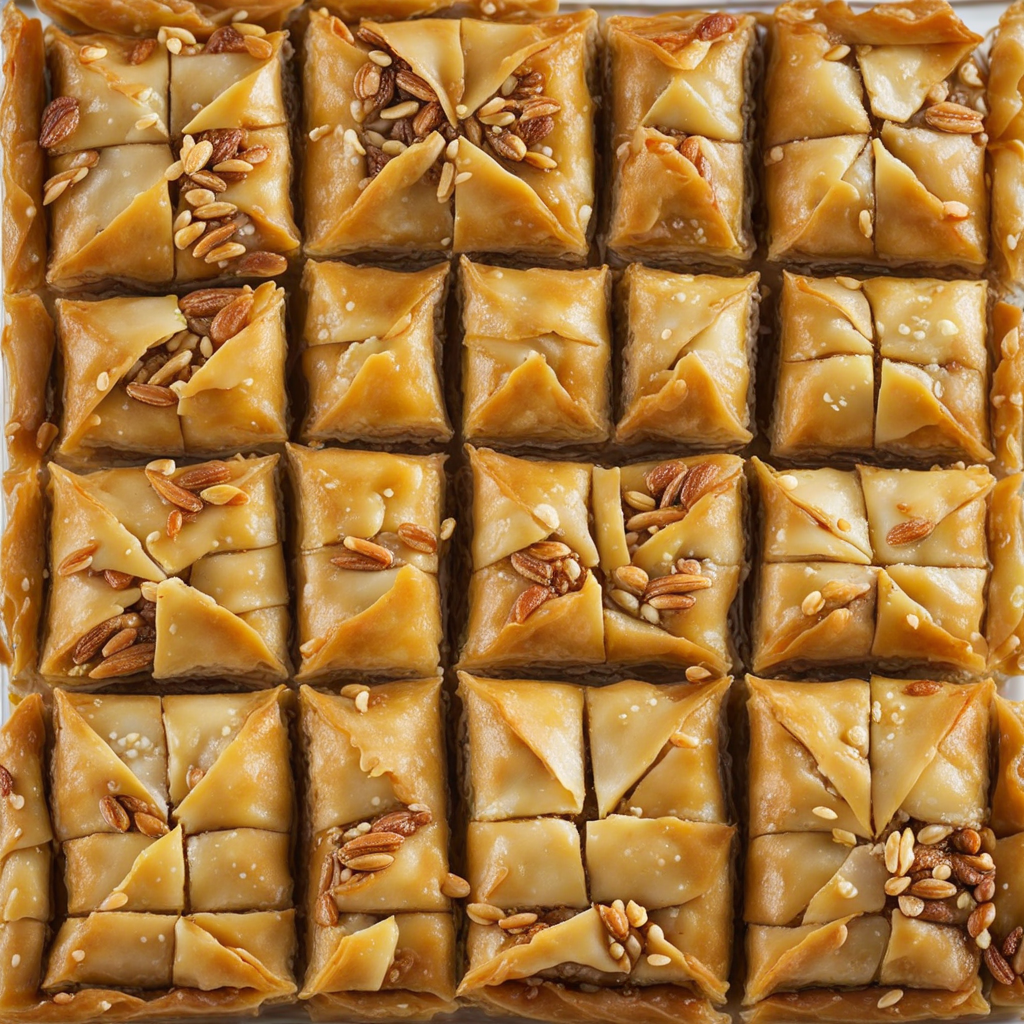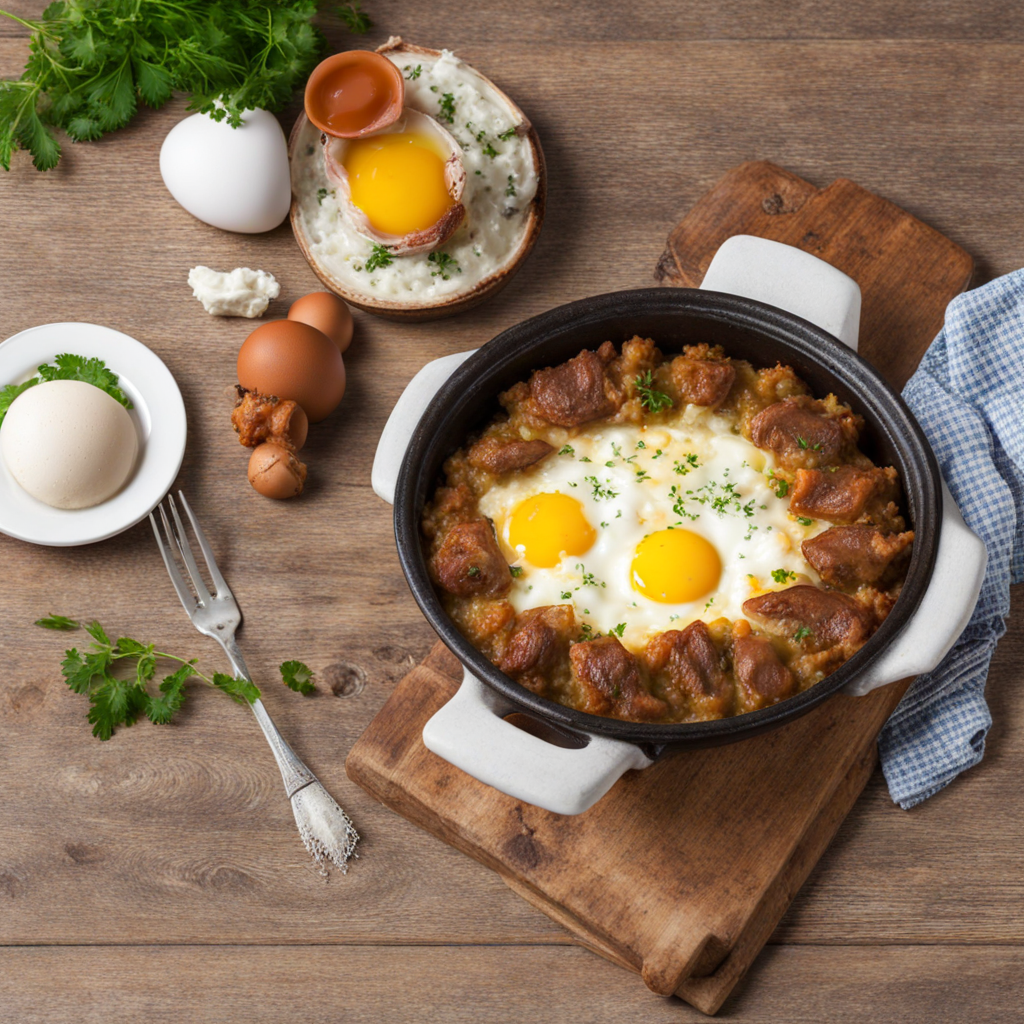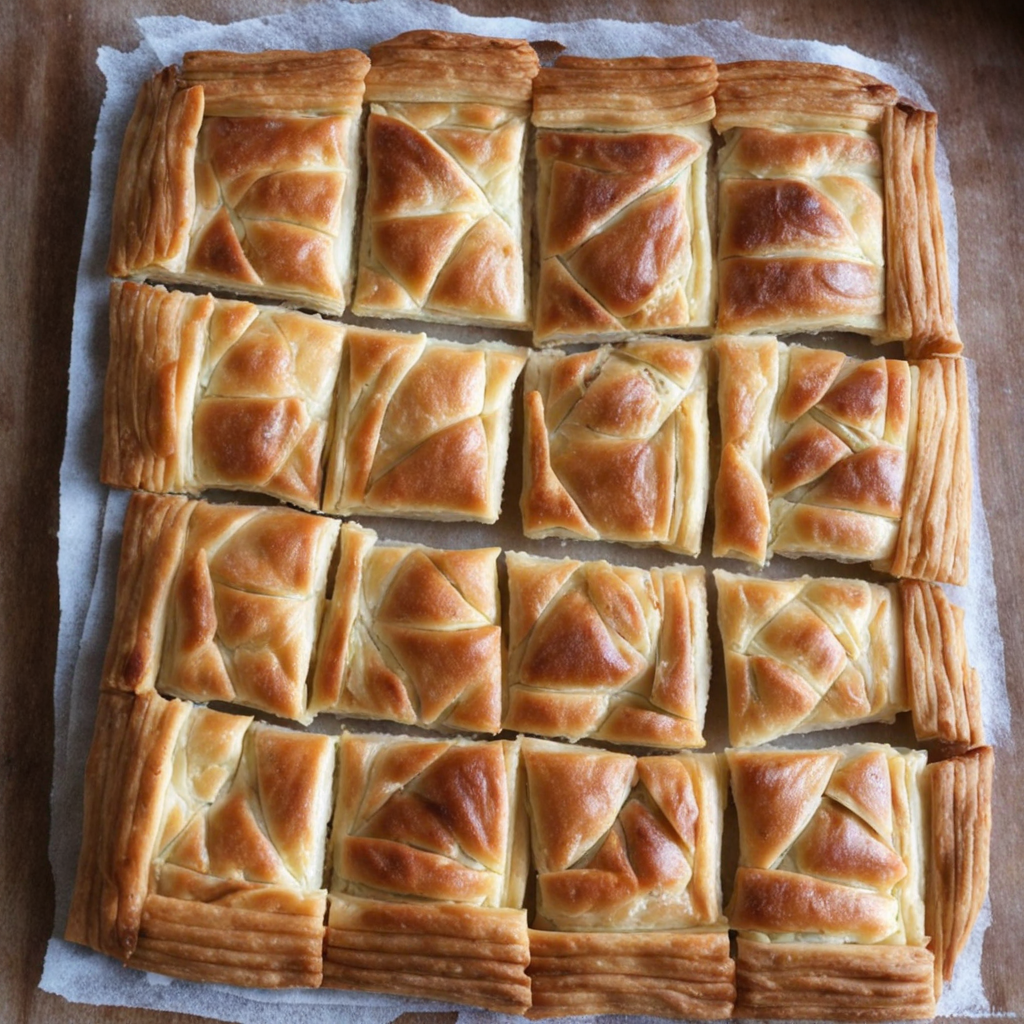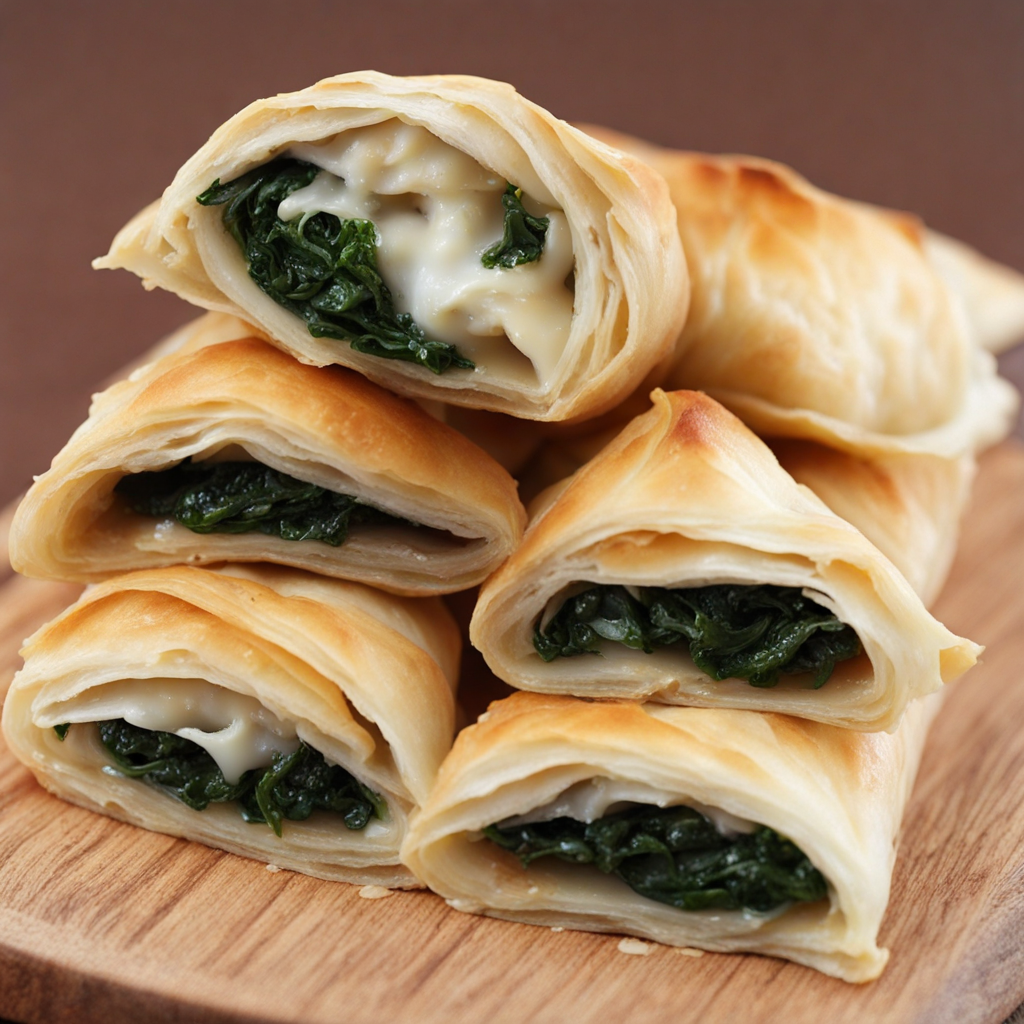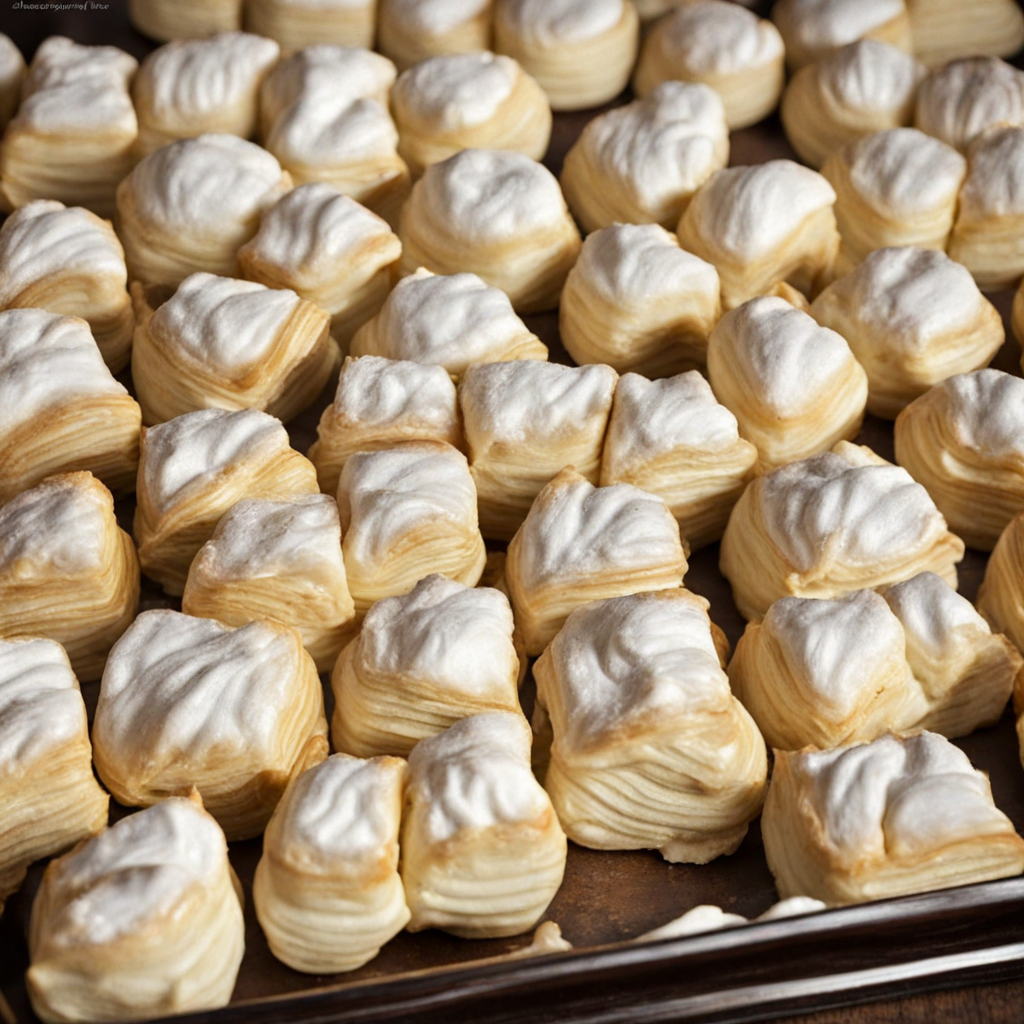Baklava
Baklava is a rich, sweet pastry that is a beloved dessert in Kosovo, renowned for its flaky layers and delightful flavors. This delectable treat is made from sheets of phyllo dough that are meticulously layered with a mixture of finely chopped nuts, typically walnuts or pistachios, and sweetened with a generous drizzle of honey or syrup. The combination of textures—from the crispiness of the phyllo to the crunch of the nuts—creates a symphony of sensations that dance on the palate. Each bite offers a perfect balance of sweetness and nuttiness, making it an irresistible indulgence for anyone with a sweet tooth. What truly sets Kosovo's baklava apart is the regional twist in its preparation and presentation. Often flavored with aromatic spices like cinnamon or clove, and sometimes enhanced with a splash of rose or orange blossom water, these subtle notes elevate the dessert, adding depth and complexity to its taste profile. Traditionally served in diamond or square-shaped pieces, baklava is often garnished with whole nuts or a sprinkle of powdered sugar, presenting an enticing visual appeal that invites you to savor every morsel. Baklava is more than just a dessert; it is a symbol of hospitality and celebration in Kosovo. It is commonly prepared during special occasions, family gatherings, and holidays, where it is shared among loved ones as a sign of love and generosity. When you indulge in a piece of baklava, you are not only enjoying a treat but also participating in the rich cultural tapestry of Kosovo, where flavors and traditions intertwine to create an unforgettable culinary experience.
How It Became This Dish
Bakllava: A Sweet Symbol of Kosovo’s Culinary Heritage Origins and Historical Context Bakllava, a rich, sweet pastry filled with nuts and sweetened with syrup or honey, has a storied history that stretches across centuries and cultures, with its roots tracing back to the ancient civilizations of the Middle East. Though bakllava is often associated with Turkish cuisine, its origins are a tapestry woven from various culinary traditions, including Persian, Byzantine, and Arab influences. The earliest forms of bakllava are believed to have emerged in the kitchens of the Byzantine Empire, where layers of dough were used in sweet pastries. However, it was during the Ottoman Empire, which spanned from the late 13th century until the early 20th century, that bakllava became a widely celebrated dessert. The Ottomans perfected the art of layering thin sheets of dough (known as yufka), interspersed with finely chopped nuts—commonly walnuts or pistachios—and drenched in syrup. These techniques spread throughout the empire, including the region that is now Kosovo. Kosovo’s geographical position at the crossroads of various cultures made it a melting pot for culinary practices. The arrival of the Ottomans in the 15th century left an indelible mark on Kosovar cuisine, and bakllava became a staple dessert in many households, especially during festive occasions. It is said that every family has its own secret recipe, passed down through generations, which reflects the personal and communal significance of this beloved dessert. Cultural Significance In Kosovo, bakllava transcends mere indulgence; it serves as a cultural emblem and a symbol of hospitality. Traditionally, it is prepared for special occasions, such as weddings, religious celebrations, and family gatherings. The act of making bakllava is often a communal affair, where family members come together to prepare the layers of dough and fill them with nuts. This teamwork not only strengthens familial bonds but also preserves the culinary heritage of the region. Bakllava is also a significant part of the Islamic celebration of Eid al-Fitr, marking the end of Ramadan. During this time, families prepare large quantities of bakllava to share with neighbors and friends, reinforcing the values of generosity and community. It is not uncommon for bakllava to be presented as a gift during visits, embodying the spirit of hospitality that is deeply cherished in Kosovar culture. Moreover, bakllava holds a prominent place in Kosovo’s identity, particularly among the Albanian population. Its preparation and consumption are intertwined with national pride and the preservation of cultural traditions, especially in the face of historical challenges. During periods of conflict, food has often served as a means of maintaining cultural identity, and bakllava has been a comforting reminder of home for many Kosovars living abroad. Development Over Time As Kosovo has evolved, so too has bakllava, adapting to contemporary tastes and influences while maintaining its traditional essence. The basic recipe remains largely unchanged, with the core ingredients—yufka, nuts, sugar, and butter—staying true to their origins. However, variations have emerged as local cooks experiment with flavors and methods. In modern Kosovo, bakllava is often infused with local ingredients, such as honey from regional beekeepers or the addition of spices like cinnamon or clove, which reflect the rich agricultural landscape of the area. Bakllava can also be found in various forms, from individual portions to larger trays meant for sharing, each style showcasing the versatility of this cherished dessert. With globalization and the rise of culinary tourism, bakllava has gained recognition beyond Kosovo’s borders. Food enthusiasts and travelers are increasingly drawn to the region, eager to experience traditional Kosovar cuisine firsthand. As a result, bakllava has found its place on menus in restaurants and cafes across Kosovo, often accompanied by local coffee or tea, furthering its role as a communal dish. In recent years, efforts have been made to promote the cultural significance of bakllava on an international scale. Kosovo’s culinary heritage is showcased in festivals and exhibitions, where bakllava often takes center stage. These events not only celebrate traditional recipes but also foster a sense of pride among Kosovars, affirming their unique place in the culinary world. Conclusion Bakllava is more than just a dessert; it is a symbol of the rich cultural tapestry of Kosovo. Its origins reflect a blend of ancient traditions and Ottoman influence, while its continued significance speaks to the resilience and identity of the Kosovar people. As communities come together to prepare and share this sweet treat, they reinforce their bonds and celebrate their heritage. Today, bakllava stands as a testament to the enduring power of food to connect people, evoke memories, and tell stories. Whether enjoyed during a festive gathering or as a cherished family recipe, bakllava remains a beloved culinary treasure that encapsulates the spirit of Kosovo. As it continues to evolve and adapt to modern tastes, bakllava will undoubtedly retain its place as a sweet symbol of hospitality and cultural pride for generations to come.
You may like
Discover local flavors from Kosovo


